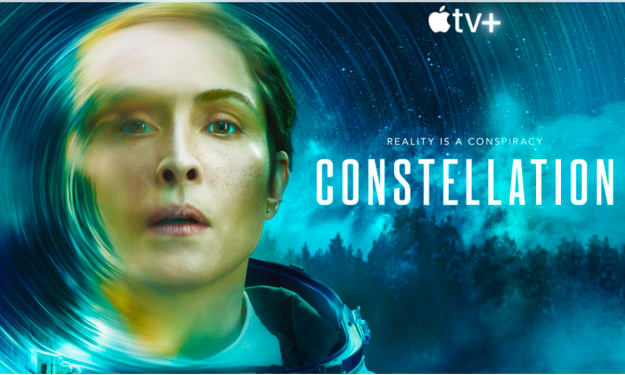The challenges of communicating with your future self
Using Quantum Cryptography

Quantum cryptography is a fascinating field of science that uses the principles of quantum mechanics to secure and transmit information. One of the most intriguing applications of quantum cryptography is the possibility of communicating with your future self. Imagine being able to send a message to yourself in the future, or receive a message from yourself in the past. How would that change your life? What kind of secrets or advice would you share with yourself?
However, communicating with your future self using quantum cryptography is not as easy as it sounds. There are many challenges and limitations that make this task very difficult, if not impossible. In this article, we will explore some of these challenges and see why quantum cryptography may not be the best way to talk to your future self.
The problem of causality
One of the main challenges of communicating with your future self using quantum cryptography is the problem of causality. Causality is the principle that events have causes and effects, and that causes always precede effects. For example, if you drop a glass on the floor, the cause is your action and the effect is the glass breaking. Causality also implies that you cannot change the past or affect the future by sending information backwards or forwards in time.
However, quantum cryptography seems to violate causality in some cases. For instance, quantum entanglement is a phenomenon where two particles share a quantum state and remain connected even when they are separated by large distances. If you measure one particle, you instantly know the state of the other particle, no matter how far apart they are. This seems to imply that information can travel faster than light, which contradicts Einstein's theory of relativity.
Some physicists have proposed that quantum entanglement could be used to communicate with your future self by creating a pair of entangled particles and sending one to the future and keeping one in the present. Then, by measuring the particle in the present, you could send a message to the particle in the future, and vice versa. However, this idea has several flaws.
First of all, there is no guarantee that the entangled particles will remain entangled for a long time. Quantum entanglement is very fragile and can be easily disrupted by environmental noise or interference. Therefore, it is unlikely that you could maintain a stable connection with your future self for a long period of time.
Secondly, even if you could preserve the entanglement, you would not be able to send any meaningful information using it. Quantum entanglement only allows you to share random bits of information, such as 0 or 1, between two parties. You cannot choose what bit to send or receive, nor can you control when or how often you send or receive it. Therefore, you would not be able to encode any message or instruction for your future self using quantum entanglement.
Thirdly, even if you could somehow overcome these limitations and send a message to your future self using quantum entanglement, you would not be able to change anything in the future by doing so. This is because quantum entanglement does not violate causality in a fundamental way. It only creates correlations between two events that happen at different times, but it does not create causal links between them. In other words, measuring one particle does not cause the other particle to have a certain state; it only reveals what state it already had. Therefore, whatever message you send to your future self using quantum entanglement was already predetermined by the initial state of the particles and cannot be altered by your actions.
The problem of security
Another challenge of communicating with your future self using quantum cryptography is the problem of security. Quantum cryptography is supposed to be secure because it relies on the laws of physics rather than mathematical algorithms to encrypt and decrypt information. However, this also means that quantum cryptography is vulnerable to physical attacks or manipulation.
For example, if you want to communicate with your future self using quantum cryptography, you need to store your quantum key somewhere safe until you can use it in the future. However, how can you ensure that no one else will access or tamper with your key while you are waiting? How can you prevent someone from stealing or destroying your key before you can use it? How can you verify that your key has not been corrupted or modified by external factors?
Moreover, even if you manage to protect your key from physical attacks, how can you protect it from logical attacks? How can you ensure that no one else will intercept or eavesdrop on your communication with your future self? How can you prevent someone from impersonating your future self or sending false messages to yourself? How can you verify that the message you receive from your future self is authentic and trustworthy?
These questions are not easy to answer and pose serious threats to the security and reliability of communicating with your future self using quantum cryptography.
The problem of ethics
A final challenge of communicating with your future self using quantum cryptography is the problem of ethics. Communicating with your future self may seem like a harmless and beneficial activity, but it also raises some ethical dilemmas and moral questions.
For instance, what if you receive a message from your future self that tells you something unpleasant or disturbing? What if your future self warns you about a tragedy or a disaster that will happen in your life? What if your future self advises you to do something illegal or immoral? How would you react to such messages? Would you follow them blindly or question them critically? Would you try to change your fate or accept it gracefully?
Furthermore, what if you send a message to your future self that affects their life in a negative way? What if you reveal something that they did not want to know or regret knowing? What if you influence their decisions or actions in a way that harms them or others? How would you feel about such messages? Would you take responsibility for them or ignore them completely? Would you respect their autonomy or interfere with their choices?
These questions are not easy to answer and pose serious challenges to the ethics and morality of communicating with your future self using quantum cryptography.
Conclusion
In conclusion, communicating with your future self using quantum cryptography is a fascinating but challenging task that involves many problems and limitations. The problem of causality prevents us from sending any meaningful information or changing anything in the future using quantum entanglement. The problem of security exposes us to various physical and logical attacks that compromise our communication and trustworthiness. The problem of ethics confronts us with ethical dilemmas and moral questions that test our values and principles.
Therefore, while quantum cryptography may offer some advantages for securing and transmitting information in general, it may not be the best way to communicate with our future selves.
About the Creator
Hector Sampson
A computer whizz, radio & TV presenter, author, speaker and polyglot. He started writing brief notes to himself, giving himself tips and telling himself off. He has written 25 books in the areas of self-help, spirituality and nonfiction.






Comments
There are no comments for this story
Be the first to respond and start the conversation.